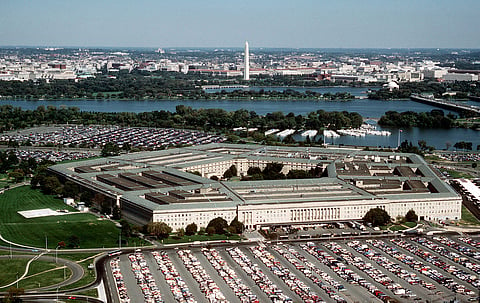

The U.S. military conducted a deadly strike on a suspected drug-smuggling vessel in the Eastern Pacific Ocean, killing two alleged traffickers, Defense Secretary Pete Hegseth announced Wednesday.
This marks the eighth such operation under the Trump administration’s intensified counter-narcotics campaign, expanding from the Caribbean to the Pacific, a key cocaine smuggling route.
The strike, the first reported in the Pacific, targeted a vessel along a known narco-trafficking route, carrying suspected narcotics, according to Hegseth.
A 30-second video posted on X showed the boat exploding after moving through the water.
Unlike previous Caribbean operations, which killed at least 32 people, this attack highlights a shift toward South American waters, where Colombia, Peru, and Ecuador are major cocaine trafficking hubs.
The administration has not disclosed specific evidence of the vessel’s cargo or why the military, rather than the Coast Guard, conducted the operation.
The strikes have sparked bipartisan scrutiny in Congress, with lawmakers questioning their legal basis and execution.
The administration justifies the operations under the same legal framework used in the post-9/11 war on terrorism, designating cartels as unlawful combatants.
Critics, including Rep. Adam Smith, have decried the lack of transparency and called for congressional oversight.
Sen. Rand Paul has warned against unchecked executive power in these lethal actions.
Despite concerns, a recent Senate vote rejected a resolution to require congressional approval for further strikes.
The operation follows the Coast Guard’s Operation Viper, which seized over 100,000 pounds of cocaine in the Pacific by mid-October, raising questions about the military’s role over traditional law enforcement.
The administration has not pursued prosecutions of survivors, with two from a prior Caribbean strike repatriated to Colombia and Ecuador, the latter released due to insufficient evidence.